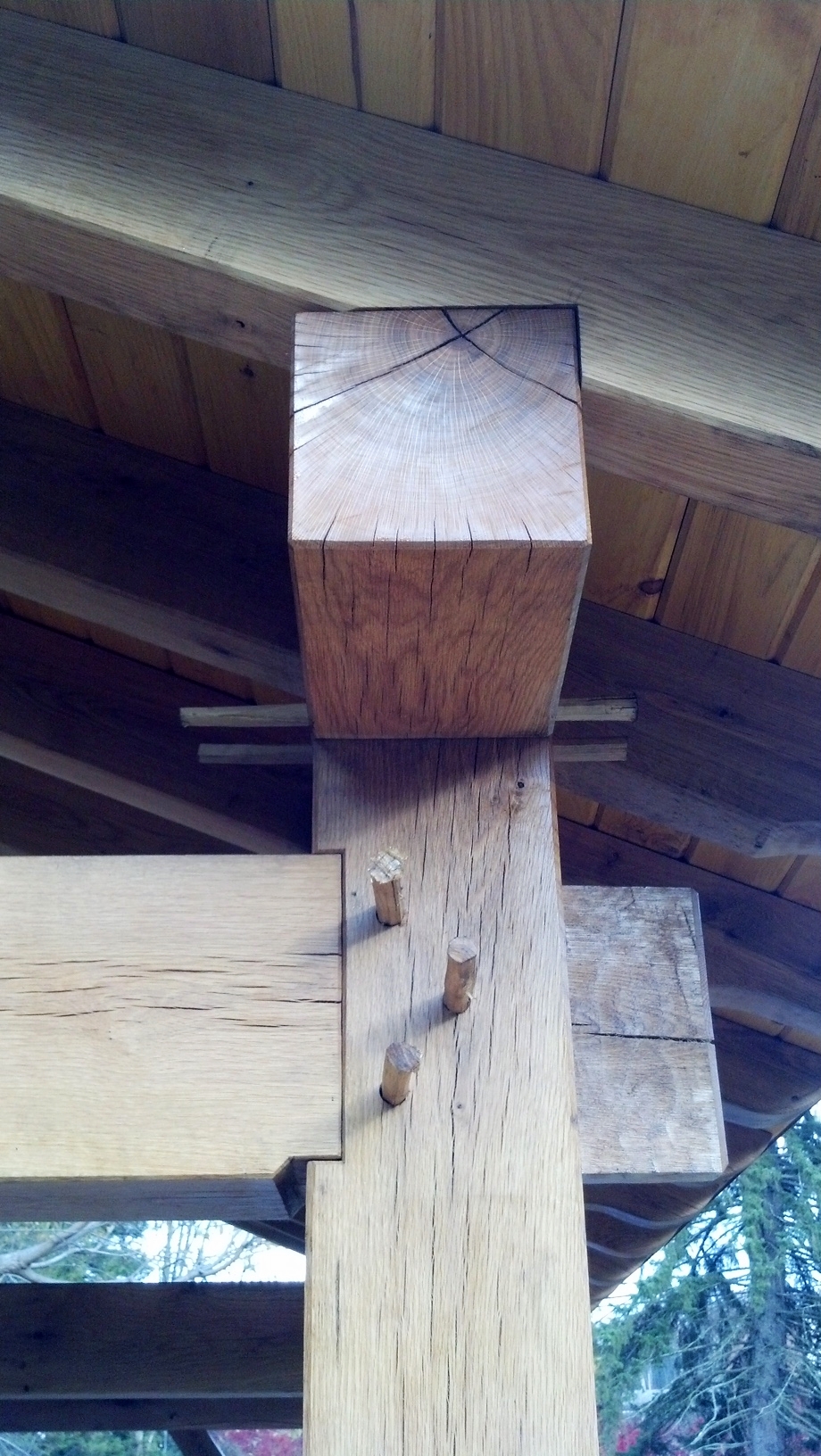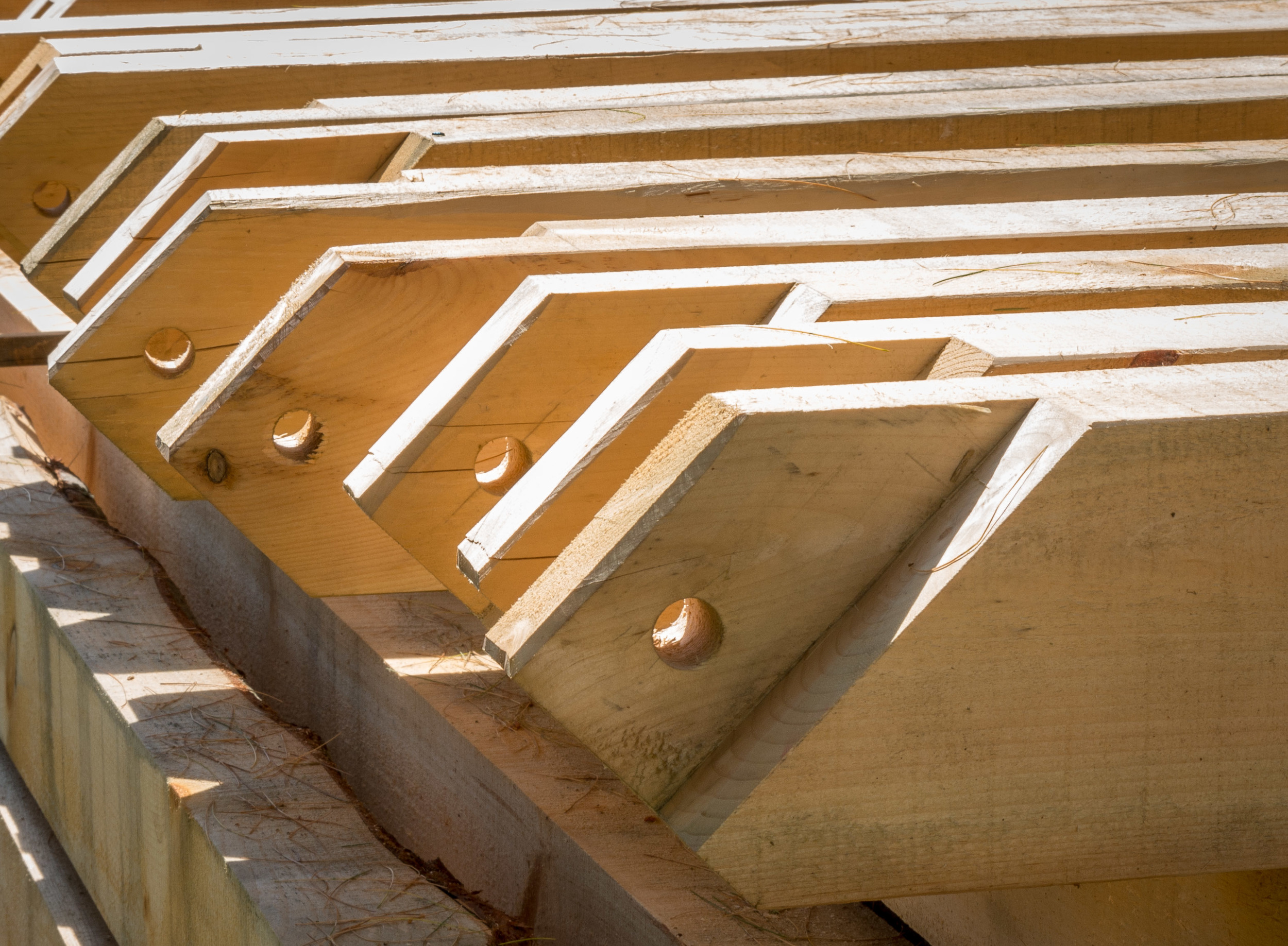A Timeless Way of Building
Frame-to-finish carpentry. Specializing in custom timber frame structures.
We believe that craftsmanship and beauty are key elements of sustainable design.
What is Timber Framing?
Traditional post & beam construction, relying on wooden joinery held fast by hardwood pegs, and raised by the community - or a little help from a crane!
These methods, brought over by European settlers and refined over the centuries, form a uniquely American vernacular. Our approach is rooted in the best elements of this timeless style, updated for the modern era.
The solidity and natural warmth of a timber frame resonate powerfully in a deep, atavistic connection with the home; Those who dwell within feel protected and truly sheltered.
Benefits of Timber Framing
Timberframe raisings are a once-in-a-lifetime event for the homeowner and their community
Costs are competitive with conventional stick-frame construction
Because the beams are engineered for their location in the structure, load-bearing walls can be eliminated, resulting in a more expansive interior plan
Safer in a fire: Heavy timbers are slow to ignite and tend to smolder rather than combust. Modern buildings can be deathtraps in a fire scenario, as flimsy trusses, I-joists and other lightweight structural materials are quickly compromised when exposed to flames, but a timber frame will often survive the fire that consumes the house around it
With the insulative layer built outside the structural members, a tighter envelope with minimal thermal bridging can be achieved
Locally sourced, sustainably harvested timbers
Working with local sawyers and sawmills helps sustain an industry of small-scale lumber producers with deep historical roots in the area
Outperform conventional construction in earthquakes due to the ability of the wooden joints to flex and re-settle
Tighter tolerances can be achieved because the frame is shop-built, rather than constructed on-site
Non-toxic building materials: we prefer naturally decay-resistant species (White Oak, Black Locust, Cedar) as an alternative to pressure-treated lumber when possible
















